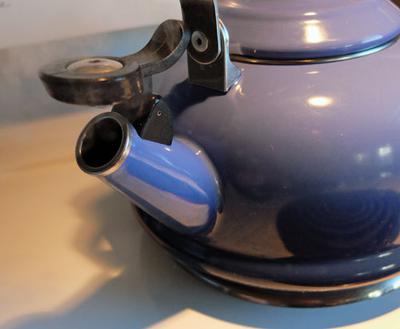What is the correct water temperature for brewing coffee?
by Alex Paken
(Warren, RI )

Boiling water from the kettle. Now wait a little before brewing.
QUESTION:
When I make coffee with my drip brewer, it heats up the water and, I guess, it's at the right temperature when it brews the coffee. But what about when I use my French press? Someone told me I should never pour boiling water on coffee. Is that true?
ANSWER:
The ideal temperature for brewing coffee is 200 Degrees Fahrenheit. That said, don't get overly concerned about hitting the exact right temperature.
Drip brewers have their own thermostats, and some even offer you a choice of more than one brewing temperature. Why they do that is a bit of a mystery. Perhaps they are trying to appeal to people who don't want their coffee too hot.
If you are boiling water for use in a French press, bring the water to a boil and then leave it to rest for a minute before pouring in onto the coffee grinds. Again, whether you wait for a full minute or you get impatient and pour the water after thirty seconds, don't worry about it. A few degrees difference won't spoil your coffee.
Related information:
What is the correct temperature for serving coffee?





